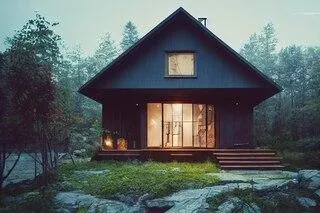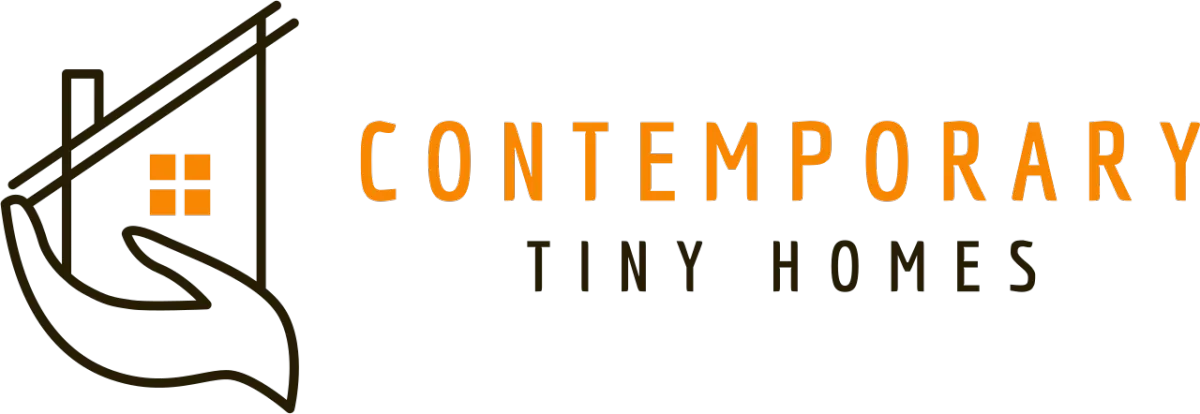Knowledge Center: Your Go-To Resource for ADUs and Tiny Living
Knowledge Center: Your Go-To Resource for ADUs and Tiny Living
Email [email protected]
Phone 860-TINY-HOM (es)

How do tiny homes affect mental health?
As more individuals embrace the concept of living in Accessory Dwelling Units (ADUs), the potential impact on mental health has become a topic of interest. Let's inspect the relationship between ADUs and mental well-being, examining the benefits, challenges, and strategies for promoting positive mental health in the context of minimalist living.
Benefits of ADUs
Tiny living offers a range of advantages that go beyond just having a smaller footprint on the environment. Let's explore some of the key benefits of embracing the tiny house lifestyle.
Financial Freedom and Simplified Living
Living in an ADU can significantly reduce housing costs, allowing homeowners to save money and potentially achieve financial independence. With lower expenses on utilities and maintenance, tiny living offers a more affordable way to enjoy homeownership.
Environmental Sustainability and Reduced Carbon Footprint
ADUs consume fewer resources compared to traditional houses, making them a more sustainable housing option. From lower energy consumption to using eco-friendly materials, these secondary dwellings can help reduce your carbon footprint and contribute to a greener planet.
Potential Challenges of ADU Living
While ADUs offer many benefits, they also come with potential challenges that residents must navigate. From smaller square footage to adjusting to a minimalist lifestyle, here are some of the common challenges of living in a tiny home.
Space Limitations and Storage Issues
One of the most main challenges of tiny living is dealing with less space for belongings. Finding creative storage solutions and prioritizing essential belongings are essential to make the most of a tiny home. Downsizing and decluttering become crucial in maintaining a functional living environment.
Adjusting to a Minimalist Lifestyle
Living in an ADU requires a shift towards a minimalist lifestyle, where possessions are pared down. Letting go of excess belongings and embracing a simpler way of life can be a challenging but rewarding process for those transitioning to simple living.
Impact of ADUs on Mental Health
Beyond the physical aspects of tiny living, there is a growing recognition of the positive impact it can have on mental health. Let's delve into how living in a tiny home can influence well-being and overall happiness.
Reduced Stress and Anxiety Levels
The simplicity and coziness of a tiny home can create a calming environment that reduces stress and anxiety. With fewer distractions and a focus on what truly matters, living in an ADU can promote a sense of peace and tranquility.
Enhanced Sense of Freedom and Independence
Tiny living encourages a sense of freedom and independence by breaking away from the constraints of excessive consumerism and materialism. Embracing a minimalist lifestyle can lead to a greater appreciation for experiences over possessions, fostering a deeper sense of fulfillment and autonomy.
Strategies for Promoting Positive Mental Health
Creating Functional and Personalized Spaces
Maximizing storage, decluttering regularly, and personalizing your tiny home can create a sense of calm and control over your environment, promoting a positive mindset and reducing stress.
Implementing Mindfulness Practices and Self-Care Routines
Incorporating mindfulness practices such as meditation, yoga, or simply taking a moment to breathe deeply can help alleviate the pressures of living in a small space. Setting aside time for self-care and relaxation is crucial for maintaining mental health.
Conclusion
ADUs can have a significant impact on mental health, both positive and challenging. To make the most of tiny living, prioritize social connections, create a functional and personalized space, practice mindfulness, and share experiences with others in the tiny home community. By focusing on well-being and connection, tiny homes can be a sanctuary for a healthy mind and happy heart.
The impact of tiny homes on mental health is multi-faceted, with both advantages and challenges to consider. By understanding the unique dynamics of living in a small space and implementing strategies to nurture mental well-being, individuals can cultivate a sense of mindfulness, and personalized comfort within their tiny home environments. Whether through fostering connections with others, embracing a minimalist lifestyle, or prioritizing self-care practices, the journey of living in a tiny home can be a transformative experience that positively influences mental health and enhances overall quality of life.
FAQ
Can living in a tiny home improve mental health?
Yes it can. Living in a tiny home can improve mental health by simplifying life, reducing clutter, and fostering a focus on essentials. The reduced financial burden and minimalism associated with tiny living can also alleviate stress and enhance well-being.
What are some common challenges associated with tiny living and mental well-being?
Common challenges include limited space, lack of privacy, and potential feelings of confinement. Adapting to compact spaces and adjusting to fewer possessions may also require a mental adjustment period.
How can individuals promote positive mental health while living in a tiny home?
Staying organized, creating designated areas for work and relaxation, and prioritizing outdoor activities can help maintain balance. Building routines and engaging in hobbies can also enhance well-being in a small space.
Are there specific design elements or practices that can enhance mental well-being in a tiny home setting?
Natural light, plants, and calming colors can positively impact mental well-being. Functional layouts, multi-purpose furniture, and adding personal touches make the space both comfortable and uplifting.

Copyright 2026. All rights reserved. Norwalk, CT
Connecticut's New Home Construction Contractor License: #NHC.0017654
EPA Lead-Safe Certified NAT-F269966-1


